The beauty of the Mediterranean diet is that it is not a diet, but the principles of a balanced diet.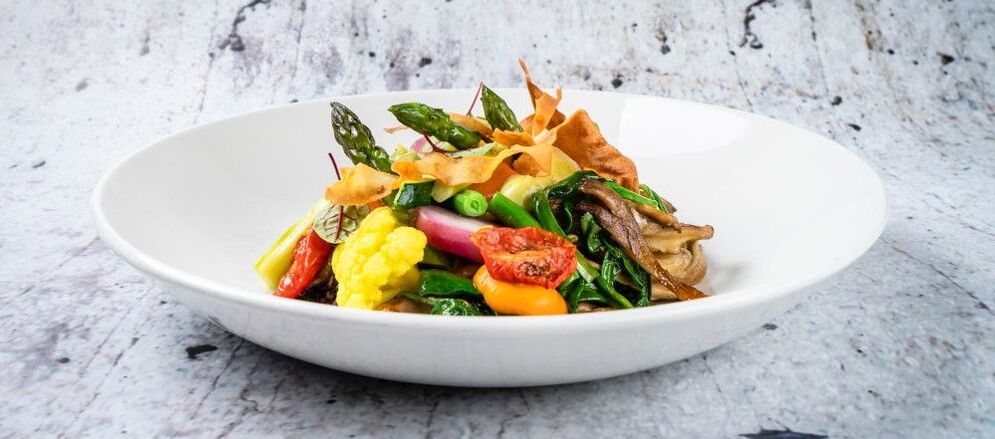 As a rule, almost any diet implies strict restrictions, it is desirable to carry out under the supervision of a doctor, and has contraindications. The Mediterranean diet is suitable for everyone, including children, pregnant women and the elderly. Even if you are allergic or intolerant to certain foods, they are easily replaced by others. You will not be hungry and stressed. Otherwise, you will really enjoy your meal. It is not without reason that the inhabitants of this area have excellent health and a cheerful disposition.
As a rule, almost any diet implies strict restrictions, it is desirable to carry out under the supervision of a doctor, and has contraindications. The Mediterranean diet is suitable for everyone, including children, pregnant women and the elderly. Even if you are allergic or intolerant to certain foods, they are easily replaced by others. You will not be hungry and stressed. Otherwise, you will really enjoy your meal. It is not without reason that the inhabitants of this area have excellent health and a cheerful disposition.
The Mediterranean diet is a lifestyle that allows you to stay in shape, get sick less, and prolong youth. Thinking about adjusting the diet towards proper nutrition, learn the principles of the Mediterranean diet.
In 2010, the Mediterranean diet received official UNESCO status as the intangible heritage of the Mediterranean countries: Greece, France, Italy, Morocco, Spain, Croatia, Cyprus, Portugal.
If we turn to history, we can see that in the gastronomic culture of Ancient Greece, and then in Ancient Rome, all the main components of this diet were already present. Lots of vegetables and fruits, seafood, olive oil, nuts, meats and limited amounts of sweets. That is, plant foods that are rich in vitamins, minerals and fiber, high-quality protein, healthy fats and slow carbohydrates. They activate metabolism, improve digestion, strengthen all functional systems of the body, thanks to antioxidants, they slow down the aging process, increase the production of hormones of joy, promote beauty and harmony. But the most important thing is that they always allow themselves to feel good. But vegetarianism in Mediterranean countries is not very common, while there are practically no dishes made from red meat, as well as too heavy.
Scientists from the Harvard School of Public Health investigated the health effects of the Mediterranean diet and concluded that "Mediterranean dietary traditions, regular exercise, and smoking cessation can prevent more than 80% of coronary heart disease, 70% of stroke, and 90% of Type 2 diabetes".
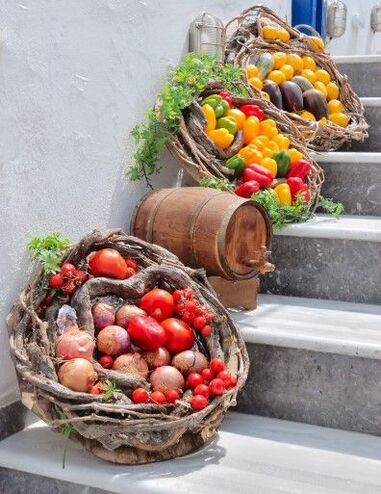
The term itself appeared in the 50s of the twentieth century, introduced by a doctor, professor at the University of Minnesota Ansel Keys. In 1945, he landed in Italy with a group of American soldiers. Observing local residents, Keys found that they are less likely to suffer from problems with the cardiovascular system, and they have a longer life expectancy than in their homeland. He suggested, and later proved, that this was the result of lifestyle and nutritional systems. A little earlier, in the late 1930s, Italian nutritionist Lorenzo Piroddi first linked nutrition and susceptibility to diseases such as diabetes, obesity and bulimia, which is why he is called the "father" of the Mediterranean diet. And Ansel Keys lived on a beach in Italy and lived to be 100 years old.
Let's list the pros of the Mediterranean diet.
Strengthens the cardiovascular system. Omega fatty acids from olive oil, nuts, seeds, certain types of vegetables and fruits keep blood vessels clean and elastic.
Prevent or treat diabetes, because the diet is dominated by foods with a low glycemic index and uses almost no sugar, which means fast carbohydrates.
Fiber-rich foods are included in every meal, they guarantee a good metabolism, help to smoothly lose weight and maintain positive dynamics over time, improve the state of the nervous system, improve mood and stimulate brain activity.
Many foods in the Mediterranean diet promote the synthesis of endorphins, dopamine, serotonin and tryptophan, the so-called happiness hormones. This reduces the risk of developing Parkinson's disease, Alzheimer's disease and dementia at an older age.
Chatting with friends, long Sunday dinner with family, picnic in nature, cooking together are part of the culture of Mediterranean countries, which are useful to introduce into daily life to minimize stress and anxiety levels and strengthen positivity.
Prolongs youth and beauty thanks to flavonoids and antioxidants. They reduce damage from oxidative processes, which worsen both internal and external conditions. Selenium, manganese, zinc, vitamins A and E make skin firm, and hair shiny and thick.
There are practically no downsides to the Mediterranean diet.
This helps you switch to proper nutrition and improves your health. It is non-seasonal, timeless, and implies a varied menu. The only drawback is the inability to lose weight quickly.
However, in reality, it turned out to be a plus. Dramatic weight loss often traumatizes the body: from a sharp change in regime, a noticeable loss of daily calorie intake, we experience stress. The body responds with poor health, decreased strength, immunity and mood, chronic diseases that become worse or new ones appear if the diet is not controlled.
Yes, for some time the weight is lost quickly, but the brain activates a protective mode against possible hunger, and even from low-calorie foods the body manages to store fat reserves. Therefore, most often after the end of the diet, the weight returns, and sometimes it even increases.
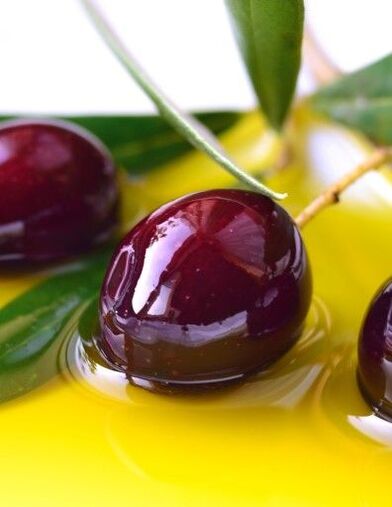
This will not happen with the Mediterranean diet. You won't see a quick change, but be patient. You will see the first results in a few months. You should eat five meals a day in small portions - so you will not feel hungry, and the body will receive the various nutrients it needs. Gradually, a rational diet will restart the body's functional systems, metabolism will improve, and weight will return to normal. Add physical activity, at least a long walk, and the effects will be noticeable.
The list of approved products is extensive. Nutritionists have identified them in a pyramid based on (60%) sources of high-quality complex carbohydrates, fats and vegetables. The former include whole grains, durum wheat pasta, whole grain breads, nuts and seeds, and legumes. Products from this group should be included in the menu every day.
Vegetables are served in all variations. Look especially for leafy vegetables such as spinach and kale, and vegetables with less starch such as eggplant and zucchini, cauliflower and broccoli, tomatoes, bell peppers and fennel. WHO recommends a daily intake of vegetables - 6 servings per day - based precisely on the number of vegetables in the Mediterranean diet.
Previously, when there was no modern technology for preserving vegetables, cooking was based on the principle of seasonality. Unfortunately, in our case, seasonal vegetables are a short-lived pleasure. There is a solution: use frozen vegetables. Unlike imported ones, shock freezing, which is done within hours of harvesting at the peak of ripeness, retains almost all of the vitamins in it. In winter and spring, vegetable freshness is a rather arbitrary concept. Manufacturers take into account the long journey and storage, where they treat it with chemicals.
Chickpeas, lentils and beans contain complete plant protein, a rich complex of nutrients and fiber. They saturate well and create a feeling of fullness for a long time. Combined with legumes, a wide variety of balanced meals can be prepared. A thick, rich soup will keep you warm in cold weather, and a salad is a great option for dinner. Try eating vegetables and beans for dinner two to three times a week.
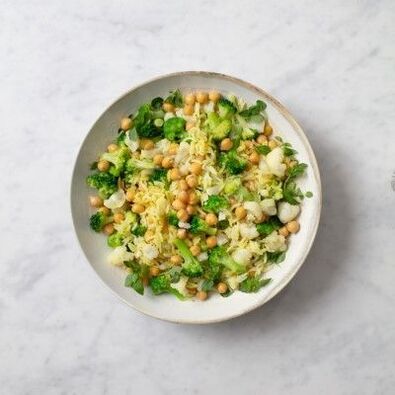
Jasmine rice with chickpeas, mini broccoli, mini cauliflower and truffle oil
Material:
- Bonduelle beans (chickpeas) 1 can (310 g).
- Bonduelle mini broccoli 1 pack (300 g).
- Bonduelle mini cauliflower 1 pack (300 g).
- Jasmine rice 200 gr.
- Basil 40 grams.
- Curry 1 tsp
- Olive oil 20 ml.
- Salt to taste.
Recipe:
- Cook rice according to directions. Add curry, stir.
- Heat olive oil in a frying pan and sauté some cabbage and broccoli.
- Combine cabbage, chickpeas and rice, stir. Salt if necessary. Garnish with basil leaves before serving.
Pasta isn't bad when it's made from durum flour: it's low in calories, has a rich vitamin and mineral composition, and is easy to digest. In addition, pasta, like cereals, is one of the main sources of B vitamins. Pasta made from unrefined flour provides energy to the body, for example, it is recommended to eat before physical activity.
Of course, all the benefits can be canceled out if you accompany the dish with a fatty sauce or served as a side dish to meat - such a dish has nothing to do with Mediterranean traditions. Light sauces based on olive oil, vegetables, fish, and seafood are great choices for pasta.
Spaghetti with mini broccoli and pine nuts
Material:
- Broccoli wrap (300 g).
- Spaghetti 250 grams.
- Pine nuts 40 grams.
- Olive oil 20 ml.
- Ricotta 100 grams.
- Salt to taste.
Recipe:
- Cook the spaghetti until it is al dente.
- Boil broccoli according to directions.
- Mash 100 g of broccoli in a blender. Mix with ricotta and olive oil.
- Stir in the spaghetti sauce and remaining broccoli, season with salt and heat in a saucepan over low heat for 2 minutes.
- Fry the pine nuts in a dry skillet and sprinkle over the spaghetti before serving.
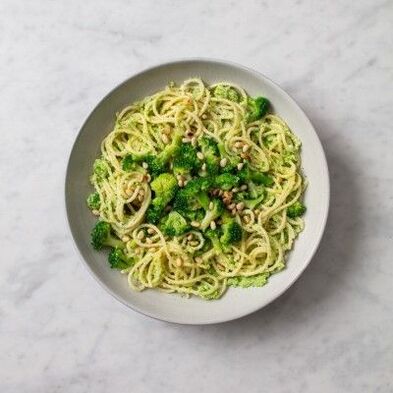
Olive oil, the alpha and omega of the Mediterranean diet, is a gastronomic symbol of the region. Olives began to be consumed here thousands of years ago. Unprocessed, the taste is very bitter, so salted or squeezed the oil.
The reason for this is the substance oleuropein, a phenolic compound that, along with omega fatty acids and vitamin E, determines the benefits of olives. Phenol is a powerful antioxidant, has antibacterial and anti-inflammatory properties, and fights free radicals. Scientists have found that 2-4 tablespoons of olive oil a day significantly reduces the risk of coronary heart disease.
Meet the mention of vitamin F, do not be surprised. Many people do not know that essential fatty acids have a common name - vitamin F. These are archidonic, linoleic and linolenic acids. The human body does not produce it and only receives it with food.
But remember that not all olive oil is created equal. The best is extra vergin, a cold-pressed oil produced by mechanical means. Its acidity, that is, the content of organic acids, does not exceed 0. 8%. During the production process, the oil fully retains vitamins and antioxidants, it should be stored in dark glass bottles at room temperature. It doesn't have to be heat treated.
Add olives on their own anywhere: in salads, soups, main dishes, pies, toast or omelettes. Olives have a salty taste, with them, the dish does not require additional salting, which will reduce the amount of salt consumed. Find inspiration in our selection of olive recipes.
The second step of the pyramid is the correct source of protein, which is 30% in the Mediterranean diet. Body parts get protein from plant foods, mostly fish and seafood, natural yogurt, cottage cheese, low-fat cheese (cheese made from goat's and sheep's milk are very popular), white meats (chicken, turkey, rabbit) and eggs. Foods in this group should be eaten three to four times a week.
Fish should be eaten not only on Thursdays, because the Book of delicious and healthy food is handed down, but several times a week. If you choose between river and sea, choose the latter, and the fatty variety. With it, you will receive not only protein, but also Omega 3 acids, iodine, which are rarely found in food, and an excellent complex of vitamins: vitamins A, E, D, C, B. dense structure of muscle fibers. Because of this, they immediately begin to be digested, which makes fish an ideal food product.
Talking about fish often leads to complaints that they are expensive and it is almost impossible to buy good fish. Let's solve these interesting questions.
Indeed, few people manage to buy freshly caught fish. In this case, as with vegetables, do not be afraid to freeze. Follow the rules of defrosting: on the bottom shelf of the refrigerator, which will take 10-12 hours and retain all the nutrients. Again, as with vegetables, when buying, pay attention that there are no ice crystals in the packaging. They are evidence that the fish were stored incorrectly: the temperature regime was not observed. Don't freeze the fish yourself.
Fish in all countries is an expensive product, but there is also a way out here. You can't buy salmon or tuna fillets, buy more affordable varieties: cod, mackerel, pink salmon, herring, halibut, flounder, saury, sardines. In principle, in Mediterranean countries, most families cook from this type of fish, dishes with them are very tasty and varied. Many people overlook canned tuna, but in vain: it's much cheaper than fresh and just as healthy if it's not made in oil, but in its own juice. Cooking salads with it is a pleasure: no need to bother cutting.
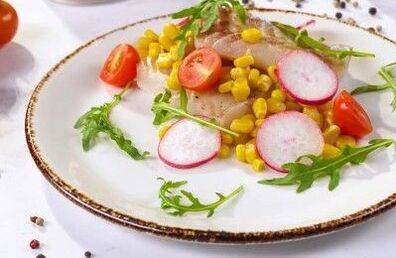
Cod fish fillet with corn
Material:
- 1/3 can Bonduelle young corn (140 g).
- Cod fillet 200 grams.
- Radish 2 pieces.
- 5 cherry tomatoes.
- 2 pinch lemon peel.
- Lemon juice 1 tsp
- Any vegetables to taste.
- Arugula to serve.
- Salt and pepper to taste.
Recipe:
- Dry the cod fillets, remove the bones with tweezers and place the fish in a baking dish. Then sprinkle lightly with lemon juice, rub with salt and pepper seasoning mixture and lemon zest. Bake in the oven at 180 degrees for 15-25 minutes depending on the size of the fillet.
- Cut the cherries in half, cut the radish into slices. Cut herbs.
- Place the finished cod fillets on a serving plate. Place garnishes of corn, tomatoes, radishes and herbs nearby. Garnish with arugula.
The same goes for seafood: we won't be aiming for lobsters, oysters, and lobsters, but let's take a closer look at mussels and prawns. Iodine, selenium, zinc, iron, copper, magnesium - this is not a complete list of minerals they contain, plus they are low in calories. Shrimp is rich in vitamin B12 - it participates in the production of hemoglobin, and in shellfish - vitamin E, which protects cell membranes from damage.
The last 10% includes red meat, which is recommended to be eaten no more than once a week, animal fats and simple carbohydrates. Try to cook meat in a gentle way - boiled or broiled, and fried without oil, on the grill. Without dessert, life is deprived of the sweet pleasures, but still chooses healthy desserts. Use a minimum of sugar, the natural sweetness of fruits, honey and even vegetables will suffice. For example, the young corn itself is sweet, the dessert is delicious and original, and you can also eat it straight from the can.

Fruit salad with young corn
Material:
- 1 can Bonduelle young corn (340 g).
- Blueberries 70 grams.
- strawberries 70 grams.
- Raspberries 70 grams.
- 1 orange.
- walnuts 80 grams.
- Natural yogurt 400 ml.
Recipe:
- Peel the orange peel from the peel. Cut the oranges into slices.
- Drain the canned corn. Mix corn and berries.
- Chop walnuts and add to yogurt, mix.
- Put the fruit salad with young corn in a small bowl, add yogurt with walnuts. Serve with orange slices.
Finally, a few words about spices.
The aroma of bright heat and Mediterranean gardens is contained in rosemary, sage, thyme, marjoram. Parsley and garlic are the simplest and most affordable spices used by regional chefs for centuries. A mix of allspice, Provencal or Italian spices will fill the dish with interesting meaning and nuance. In addition, they will allow you to use less salt - the brightness of the spices is enough for a complete taste.

There are practically no forbidden foods in the Mediterranean diet and their list coincides with that given by all nutritionists. These are fast food and "junk" food, industrial semi-finished products, sauces, sweets with preservatives and flavor enhancers.
Drink lots of water, don't skip a glass of dry red wine (but nothing more! ) and be healthy!














































































